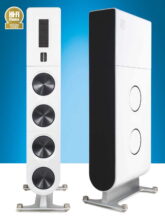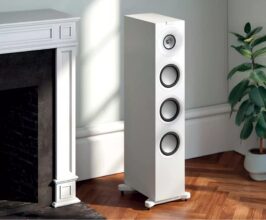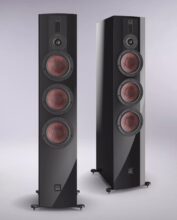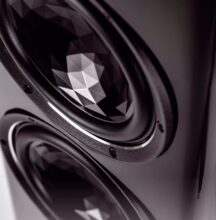SONUS FABER MAXIMA AMATOR Review
The Sonus faber Maxima Amator is a classic piece of craftsmanship for connoisseurs, combining aesthetic delight with sonic excellence.
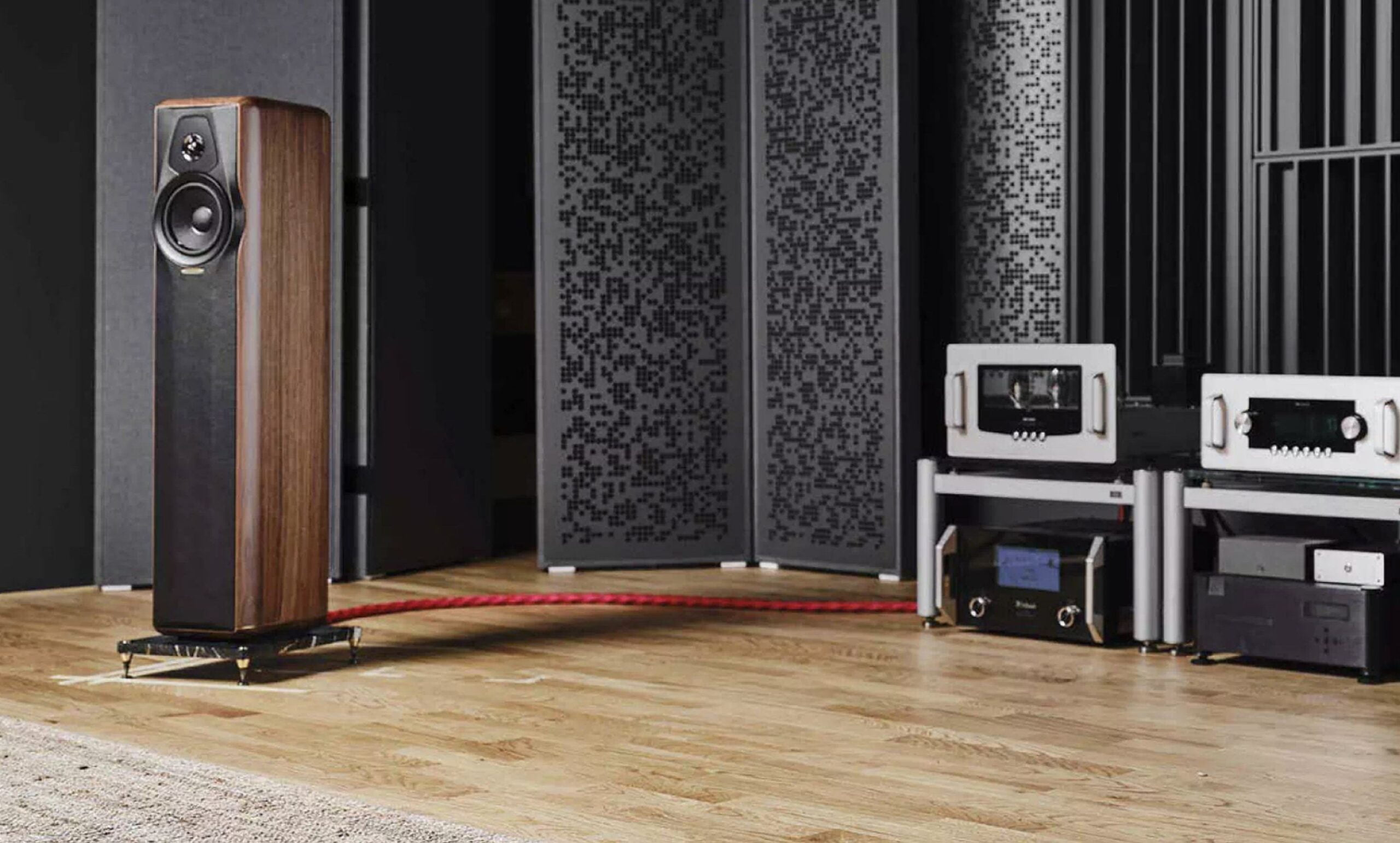
Overview
The Sonus faber Maxima Amator offers an organic and open soundstage with beautiful tonal balance, truly unleashing the music. Masterfully handcrafted, the quality is in a class of its own. However, it doesn’t play as loud and hard as the Olympica series, and the craftsmanship comes at a price.
Initial Impressions
In 2020, while testing the newly released Electa Amator III, I may have overlooked the Maxima Amator—a completely new model in Sonus faber’s Heritage series. This floor-standing version of the Electa Amator slipped from memory, but it caught my attention again at the high-end fair in Munich 2023. Displayed in a silk-matte, graphite-gray finish, the Maxima Amator exuded elegance with its hand-built cabinet in genuine walnut, resting on a base of Spanish marble.
My interest was immediately rekindled, and a few weeks later, I had them set up in my listening room. They stayed for a couple of months, offering a memorable listening experience.
Design and Build
The Maxima Amator stands out with its exquisite design and craftsmanship. The 110 cm tall cabinet is divided into two internal chambers, enhancing the bass response with greater authority than the smaller Electa Amator III.
Weighing 38 kg, the speakers feature walnut staves glued to an inner cabinet with a flexible organic adhesive, allowing the wood to expand and contract without cracking. The upper chamber, where the drivers are located, is dampened with sound-deadening material, including recycled carbon fiber, and the bass reflex port is at the top of the back, covered with black synthetic leather.
In the lower part of the cabinet, there’s a cavity filled with polished gravel, which lowers the center of gravity, making the speaker more stable and dampening resonances and standing waves.
Technical Specifications
- Type: Floor-standing speaker, 2-way bass reflex
- Tweeter: 28 mm silk dome with DAD
- Bass: 18 cm cellulose composite
- Frequency Range: 35-35,000 Hz (-3 dB)
- Sensitivity/Impedance: 88 dB / 4 ohms
- Crossover Frequency: 2100 Hz
- Max Power Handling: Not specified
- Recommended Amplifier: 25-125 watts
- Dimensions/Weight: 112 x 30 x 35 cm / 38 kg
- Color: Walnut, graphite gray (marble base)
Performance
The passion for bass is evident in the Maxima Amator, which delivers bass tones with greater authority than the smaller Electa Amator III. The larger cabinet of the floor-standing speakers adds an extra dimension to the sound, providing a fuller, more nuanced soundstage.
The crossover, housed in an inner cabinet visible through a window on the back, uses IFF (Interactive Fusion Filtering) technology. This first-order filter connects the drivers in series instead of parallel, enhancing the integration of the drivers’ characteristics and frequency ranges. This design extends the bass response down to 35 Hz, compared to 40 Hz in the Electa Amator III. The sensitivity is rated at 88 decibels, and the system impedance is 4 ohms.
Speaker Elements
The tweeter is the same as in the Electa Amator III (H28 XTR-04), featuring a 28 mm silk dome in what Sonus faber calls DAD (Damped Apex Dome), combining the qualities of a traditional dome tweeter and a ring radiator. This element is mounted in a spruce wood chamber, a material also used in acoustic guitars.
The woofer is also familiar, being Sonus faber’s 18 cm MW18XTR-04, with a lightweight cellulose fiber cone mixed with kapok tree cotton fibers and kenaf fibers from hibiscus. This combination contributes to the speaker’s organic and musical sound.
Listening Experience
During the months the speakers were in my room, they were tested with various amplifiers, including the tube amplifier Copland CTA407. This combination sounded very impressive, delivering a large-scale soundstage, wonderfully natural warm tones, and plenty of weight in the bass.
In “Butch & Butch” from Keith Jarrett Trio’s “Up For It,” the bass reproduction had a completely different authority than in a pair of Electa Amator III. The larger internal volume of the Maxima Amator adds more weight and fullness to the sound, making the percussion and double bass more prominent in the soundstage.
The speakers smoothed out any sharpness in Beethoven’s violin sonata in A major, with Maxim Vengerov on violin and Alexander Markovich on piano. The piano sound was focused and full, and compared to the MoFi SourcePoint 8, the tonal depth of the piano was also more clearly defined.
While the Maxima Amator doesn’t have the same snap in dynamics and doesn’t play as loudly as a pair of floor-standing Olympica or McIntosh ML1 stand-mounted speakers, they are more nuanced and refined in their sound reproduction.
In Sade’s “Soldier of Love,” the dynamic capabilities of the McIntosh speakers hit you in the gut when the drums come in. But switch to “Babyfather,” and it becomes clear that the Maxima Amator excels in capturing the small micro-details in the music. The vocals breathe more, the guitars resonate more, and the background vocals are more clearly defined.
Musical Flow
The music flows effortlessly and without strain through the Maxima Amator. There are almost organic qualities in how seamlessly tones and harmonics spread through the room, without any noticeable emphasis or colorations. The tonal balance is warm, yet the soundstage is airy and open at the same time.
“Home,” the album by Jan Gunnar Hoff solo on piano, recorded by 2L, is a technically perfect recording that preserves every sound. Here, the piano tones gain a pleasant warmth, but they never sound muffled or recessed. The piano’s lowest notes might need a bit of help, but it’s not necessary. I tried it with a Velodyne subwoofer, which added extra depth to the Sade album, particularly enhancing the drums. However, with the “Home” album, the piano sounded freer and more focused without the subwoofer.
With the much tighter and more powerful Yamaha A-S3200—our reference in this price range—the subwoofer became largely unnecessary. The Yamaha amp has better control over deep bass than the Copland amplifier and had no issues controlling the speakers even at high volumes.
Comparison with Other Speakers
The selection of two-way floor-standing speakers in this class is limited. The Sonus faber Olympica Nova V is floor-standing and costs the same, but it’s a larger three-way design with completely different characteristics. The Martin Logan Impression ESL 11A is also two-way but is a hybrid electrostatic speaker, and the Bowers & Wilkins 804 D4 is both more expensive and more complexly built.
In other words, the Maxima Amator has no direct competitors, although there are rivals in its price range. So where does it fit in? Are they just an Electa Amator III with deeper bass?
Placement and Setup
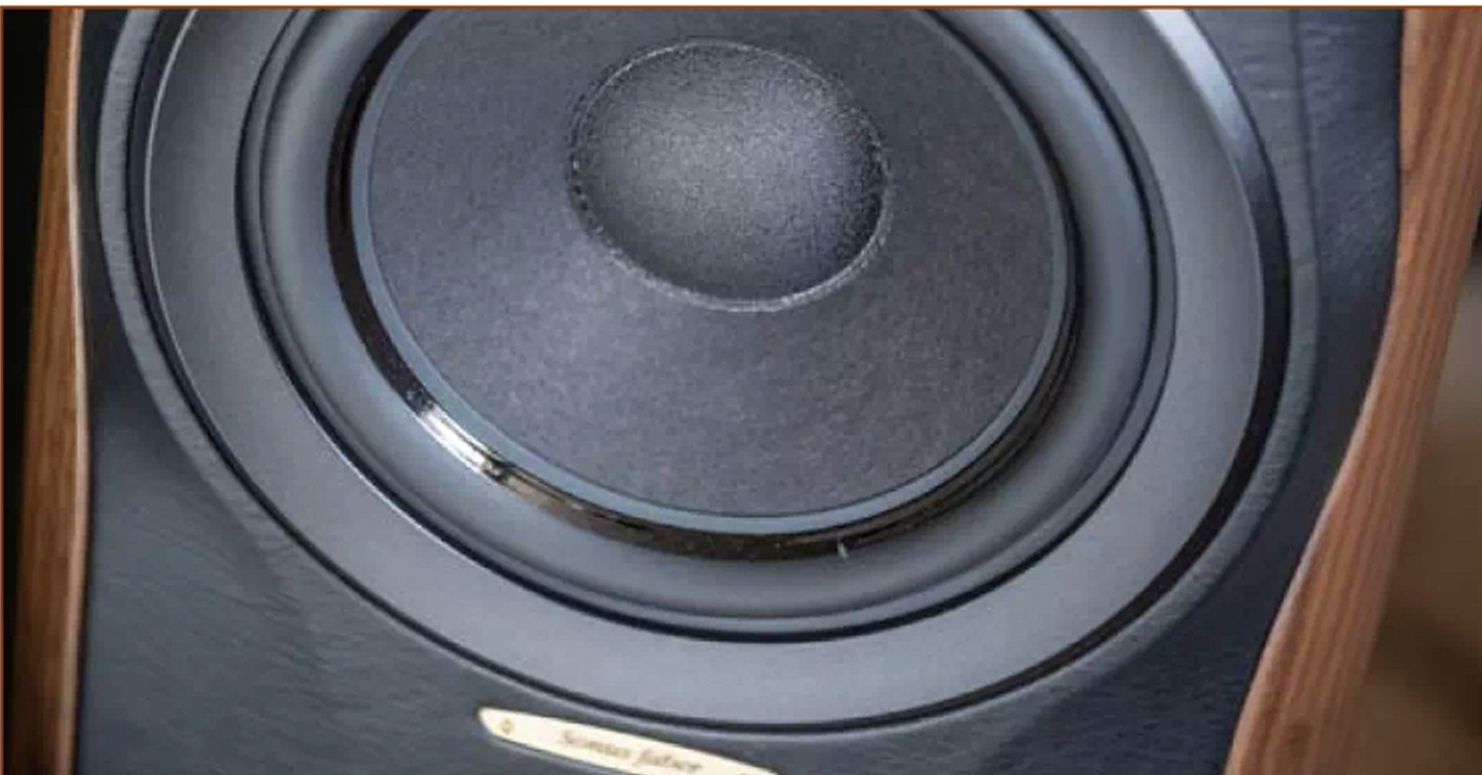
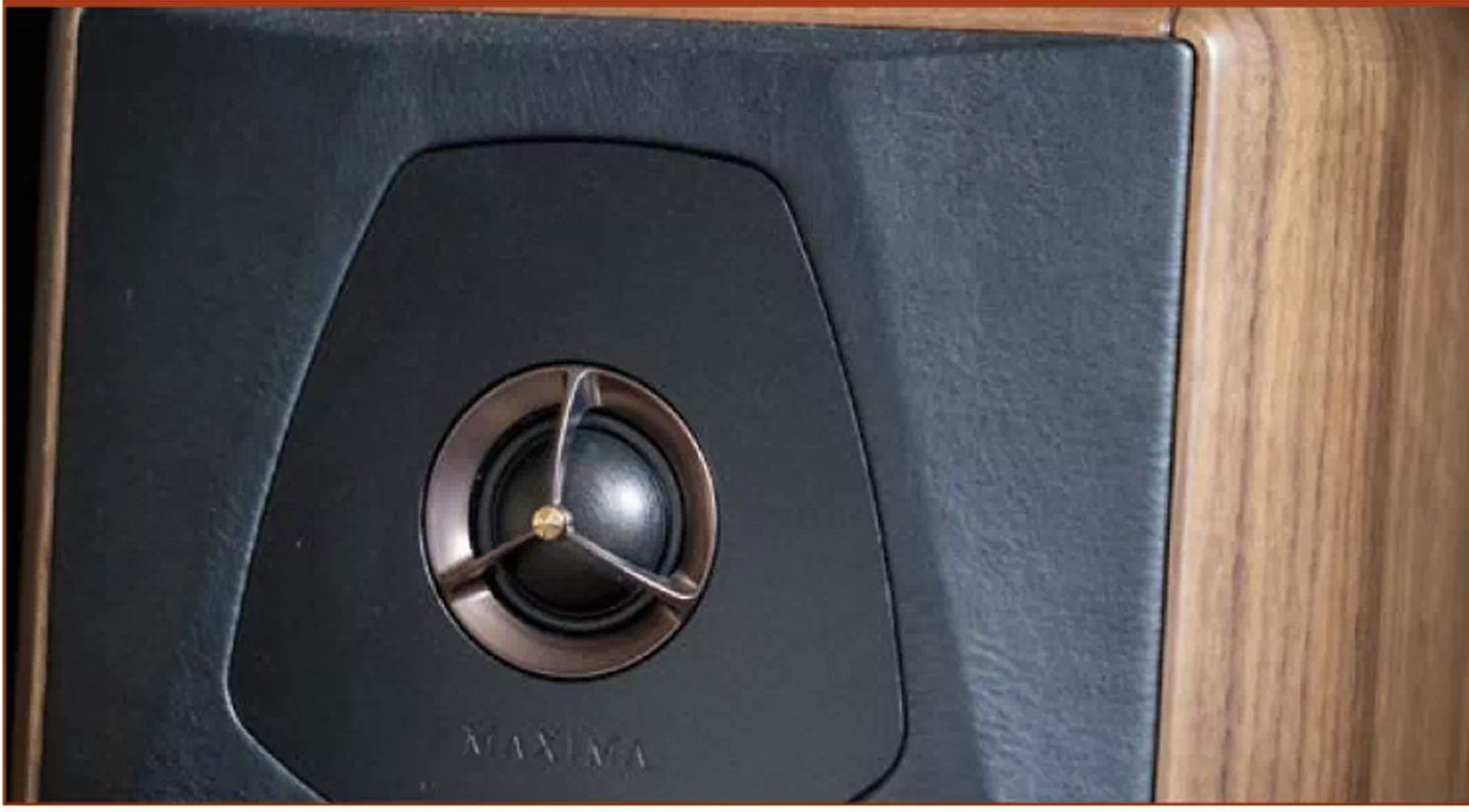
The Maxima Amator in graphite gray with Marquina marble. (Photo: Sonus faber)
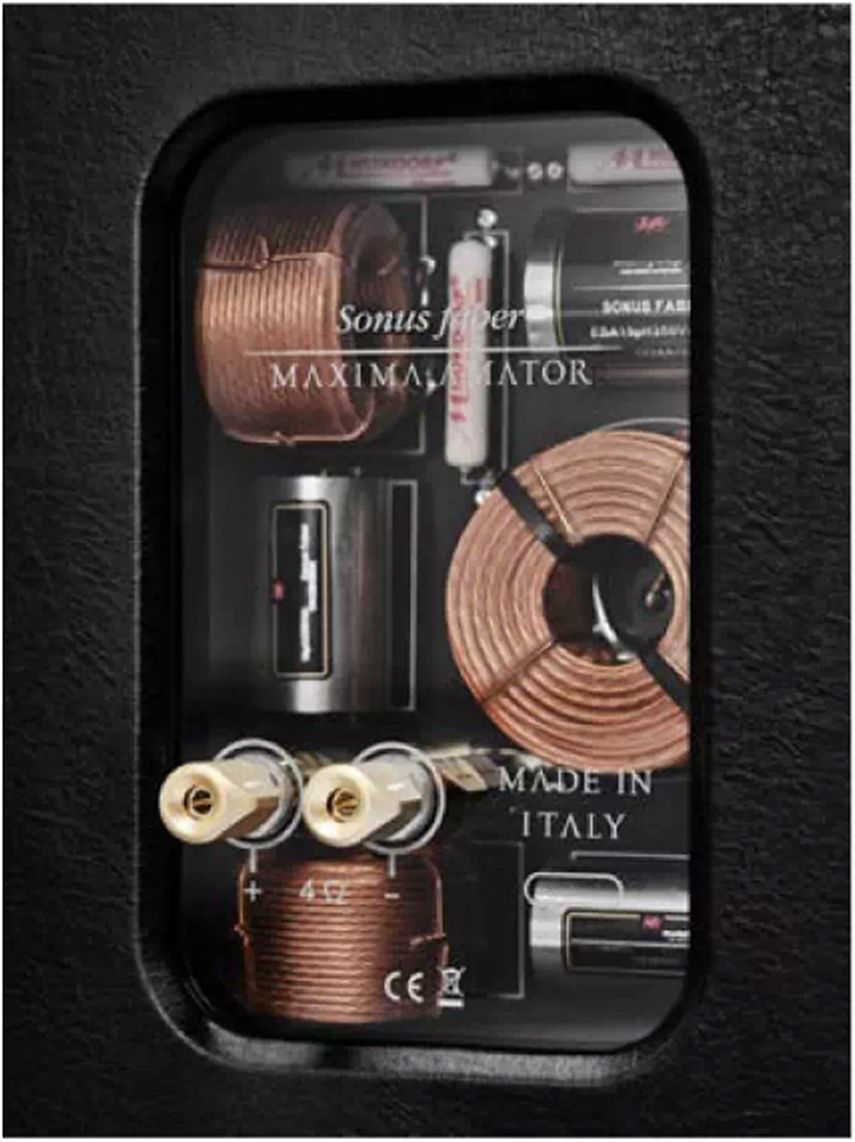
This speaker stands firmly on its own feet—or marble, in this case. Small spikes with accompanying floor protectors can be screwed under the marble base. I recommend waiting to attach these until you have found the optimal placement in the room. In my listening room, I could place the speakers closer to the back wall than I could with floor-standing models in the Olympica series. With the fronts slightly angled toward the center of the sofa, I achieved the best balance and optimal focus in my room.
Conclusion
The floor-standing Sonus faber Maxima Amator is perfect for music lovers who enjoy sitting in front of their speakers and truly listening to the music—not the speakers or the system. It’s not about the speakers’ ability to play loudly or reach deep bass. Instead, qualities like balance, tone, detail, and the natural feel of the music matter most. These are qualities that Maxima Amator excels in. Additionally, Maxima Amator offers something rarely found in other speakers at the same price: the joy of owning a product handcrafted from scratch, much like a Pagani Huayra or an Octo Finissimo from Bulgari.
Sonus faber Maxima Amator | 2-Way Speaker Review
As Maxima Amator is the third member of the Heritage family, Sonus faber pays homage to their Italian roots, and to their artisans ...



